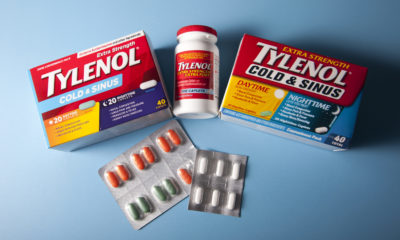Pregnancy can be hard on a woman’s body. As the body shifts to make room…
Medication is supposed to improve the lives of those suffering from certain conditions. When doctors write you a prescription, you shouldn’t have to worry about cancer risks or any other issues that could harm your health. But, not all medications were created equal. The U.S. Food and Drug Administration approved the first class of incretin mimetic drugs in 2006. However, since at least 2009, the drugs have been under scrutiny for a possible link to pancreatic cancer.
There continues to be an ongoing debate as to whether or not incretin mimetics are safe. Studies continue to find a link between the use of incretins and increased pancreatic cancer risks.
Further, in 2013, the FDA began investigating findings from Johns Hopkins University School of Medicine. The Johns Hopkins studies suggest that incretins lead to an increased risk of:
- Pancreatitis
- Pre-cancerous cellular changes (pancreatic duct metaplasia)
- Pancreatic cancer
A year after the FDA’s announcement, both the FDA and the EMA concluded that while there still wasn’t nearly enough data to rule that incretins led to pancreatic cancer, the drugs would carry a warning label for pancreatitis.
What is Type 2 Diabetes?
Type 2 diabetes is the most common form of diabetes. It occurs when blood glucose (sugar) levels in the body rise higher than normal. Another name for diabetes is hyperglycemia.
The pancreas produces a hormone called insulin, which regulates the amount of glucose in the blood. Insulin works by removing sugar from the blood and into the cell for energy and storage. A person with type 2 diabetes is considered insulin resistant. This is because their bodies are unable to make enough insulin to control blood sugar levels.
Diabetes, if left untreated, can lead to:
- Heart disease
- Nerve damage
- Blindness
- Kidney failure
- Amputations
How is Type 2 Diabetes Treated?
Once a patient is diagnosed with type 2 diabetes, a doctor will recommend that the patient eat better, exercises regularly, and have continuous blood sugar monitoring. In addition, they will likely recommend diabetes medication or insulin therapy. Diabetes medications such as metformin, sulfonylureas, and meglitinides work to control blood sugar levels in the body. For example, metformin works by helping the body use insulin more effectively. On the other hand, sulfonylureas and meglitinides work by promoting the secretion of insulin from the pancreas.
When these medications fail to get a diabetic patient’s blood sugar levels under control, doctors may prescribe incretin mimetics.
What are Incretin Mimetics?
Incretin mimetics are a group of type 2 diabetes medication that mimic the incretin hormones the body usually produces after a meal. Along with diet and exercise, these drugs lower blood sugar levels in adults with type 2 diabetes. These drugs are typically not the first line of defense against diabetes. Instead, incretin mimetics are prescribed when first-choice drugs are not working well enough alone. Doctors will prescribe incretin mimetics for patients to take along with insulin injections.
Incretin mimetic drugs work in two significant ways:
- Increase the production of insulin. Insulin is a hormone produced by the pancreas that helps the body’s cells take up glucose (blood sugar) to use for energy.
- Suppress glucagon secretion. Glucagon is another hormone released by the pancreas. However, this hormone has the opposite effect of insulin and causes the liver to release glucose stores to increase blood sugar.
Which Incretin Mimetics Have Studies Linked to Cancer?
Additional studies have linked both glucagon-like peptide-1 (GLP-1) agonists, and dipeptidyl peptidase-4 (DPP-4) inhibitors type 2 diabetes medication to increased cancer risks. As mentioned, these two forms of medications are not used as first-choice treatments. However, each of these drugs has specific uses that stimulate different functions in the pancreas.
What is a GLP-1 agonist?
The GLP-1 agonist group includes two drugs called exenatide (Byetta) and liraglutide (Victoza). The drugs work by increasing insulin release while suppressing glucagon. In addition, these drugs slow down digestion, making a patient feel full longer. For this reason, these drugs can also help prevent weight gain and aid in weight loss.
People who cannot get their blood sugar levels under control with first-line treatments may receive a GLP-1 drug for treatment. For example, if metformin and sulfonylurea are not working for a patient with a BMI 30 or higher, a doctor may prescribe a GLP-1 agonist such as Byetta or Victoza.
BYETTA
BYETTA, or exenatide, is an injectable prescription medication used to improve blood sugar levels in adults with type 2 diabetes. The FDA approved it as a monotherapy drug in November 2009, and two years later, the drug received approval as add-on therapy to insulin. The drug’s label currently warns that patients are at risk of developing pancreatitis.
VICTOZA
VICTOZA is also an injectable prescription medication to take along with insulin. The drug helps control blood sugar levels by preventing the liver from making too much sugar and aids the pancreas in producing more insulin when your blood sugar levels are high. VICTOZA carries a warning label concerning the possibility of thyroid tumors and thyroid cancer. Additionally, the drug warns patients of the chance of developing pancreatitis.
Neither of these drugs warns of the possibility that a patient may develop pancreatic cancer as a result of their use. If you or a loved one are living with type 2 diabetes and are now dealing with pancreatic cancer, contact The Carlson Law Firm to discuss your options. We can help you determine if filing a lawsuit against the makers of BYETTA and VICTOZA are the right choice for you.
What is a DPP-4 inhibitor?
DPP-4 inhibitors are a group of oral hypoglycemics doctors prescribe to treat diabetes mellitus type 2. It includes the drugs linagliptin, saxagliptin, sitagliptin, and vildagliptin. This group of incretin mimetics works by blocking DPP-4, the enzyme that destroys the incretin hormone. As a result, the level of GLP-1 and GIP increase. This action allows glucagon to release and aids in:
- Increasing insulin secretion
- Decreasing gastric emptying
- Decreasing blood glucose levels
These drugs should only be used if blood sugar levels are under control.
JANUVIA
JANUVIA is an oral type 2 diabetes medication. Its active ingredient is sitagliptin—the first incretin mimetic to receive FDA approval. The drug’s label warns of acute pancreatitis, including fatal and nonfatal hemorrhagic or necrotizing pancreatitis.
JANUMET
JANUMET is another oral type 2 diabetes medicine that can help lower blood sugar in adults. The tablets contain both sitagliptin and metformin. The drug also lists pancreatitis as a risk.
Do Incretin Mimetic Drugs Cause Cancer?
Because incretin mimetics stimulate cells in the pancreas, they may have potentially adverse effects on the pancreas. Studies have shown that this group of diabetic medication can increase the possibility of patients developing acute pancreatitis and pre-cancerous cells. These studies prompted the FDA to issue a safety communication for these two drugs in 2013.
The FDA warns that postmarketing reports show examples of “acute pancreatitis, including fatal and serious nonfatal cases associated with the use of the incretin mimetic drugs exenatide and sitagliptin.”
The Butler Study
In 2009, an endocrinologist from the University of California, Los Angeles, Peter Butler, published a series of studies calling into question the safety of incretin mimetics. Butler used animal models and the pancreases from deceased human organ donors to run his tests. He found that incretin therapy made certain pancreas cells multiply. As a result of this cell multiplication, the cells of the pancreas increased. Butler deduced that the therapy seemed to fuel precancerous lesions’ growth—a common finding in incretin-treated pancreases. His study concluded that while incretin therapy doesn’t trigger cancer, it does act as a growth hormone.
What is Pancreatitis?
Pancreatitis is a disease that leads to the inflammation of the pancreas. There are two forms of pancreatitis:
- Acute pancreatitis is the sudden inflammation of the pancreas that lasts for just a short time. In most cases, people experience mild symptoms and make a full recovery with the right kind of treatment. However, in severe cases, the condition may lead to bleeding in the gland, tissue damage, infection, and cysts. When pancreatitis is severe, it can also harm other vital organs.
- Chronic pancreatitis is the long-lasting inflammation of the pancreas. This condition mostly develops after an episode of acute pancreatitis.
What is the connection between pancreatitis and pancreatic cancer?
There is evidence that incretin mimetic drugs may lead to pancreatitis. The inflammation of the pancreas can lead to the body’s digestive enzymes attacking the pancreas. For instance, the disease can cause tissue damage, infection, cyst formation, and bleeding. One study shows that chronic pancreatitis increases the risk of developing pancreatic cancer by nearly eight times.
The Carlson Law Firm Can Help
The Carlson Law Firm is currently investigating pancreatic cancer in diabetic patients who used incretin mimetics. Hundreds have taken legal action against pharmaceutical companies for these dangerous drugs. If you or someone you love suffered injuries from Januvia, Janumet, Byetta, or Victoza, contact our firm. We have been representing clients against big pharmaceutical companies for more than 40 years.
Contact us today for a free case evaluation. We are ready to answer all of your questions and serve you with the signature customer service that contributes to our continuing success. We care, we can help.



